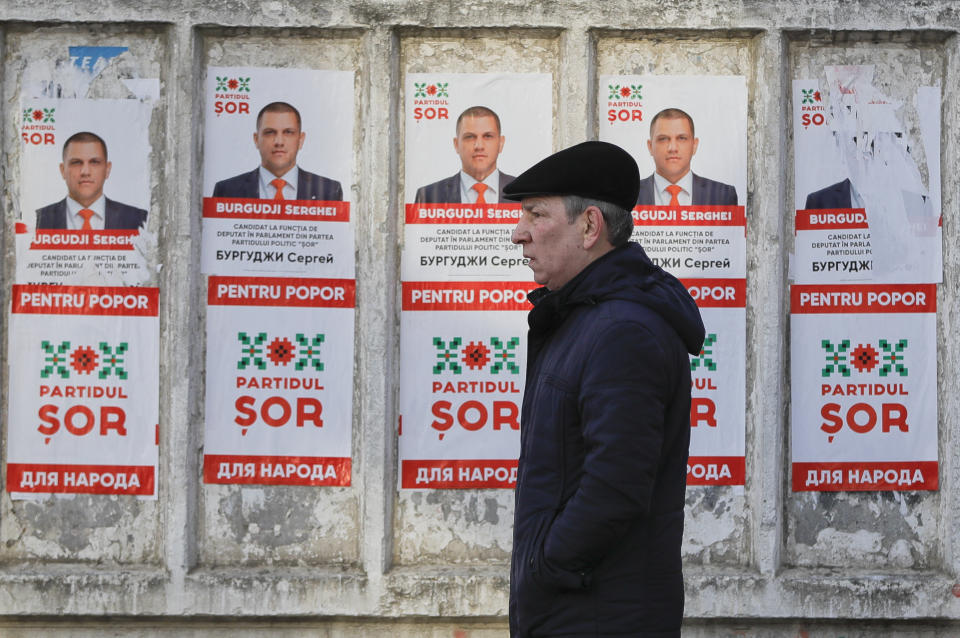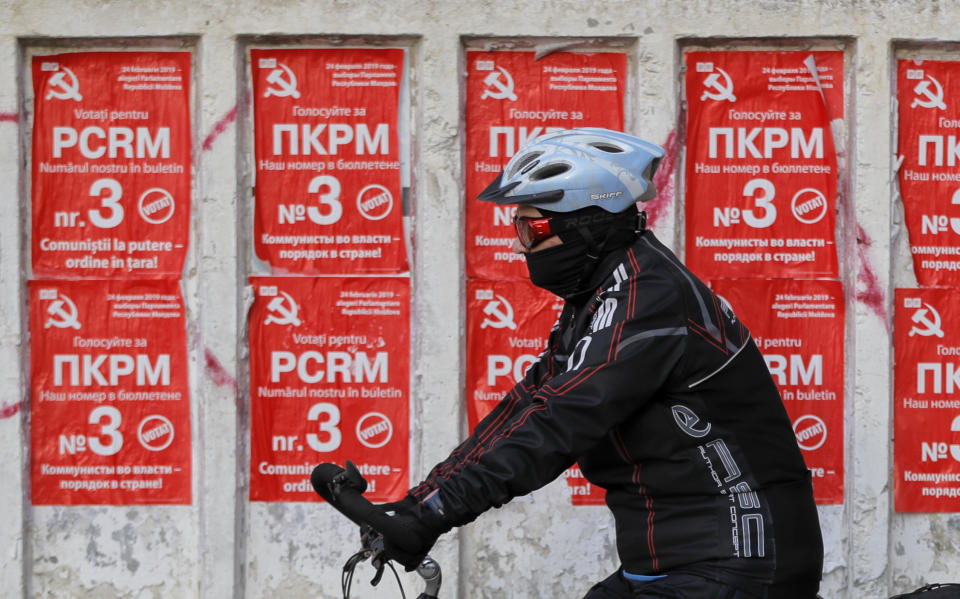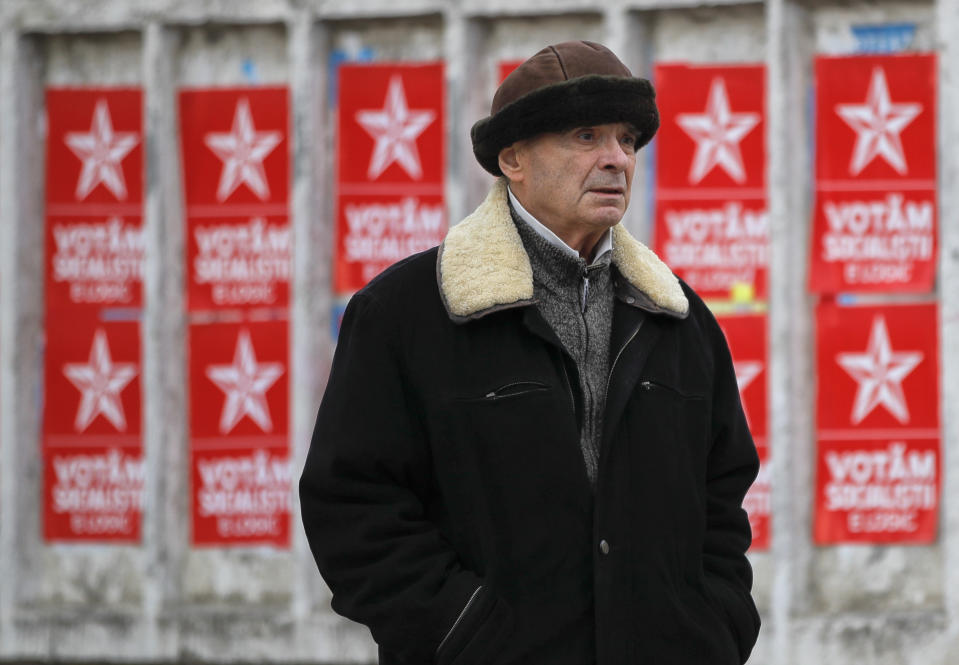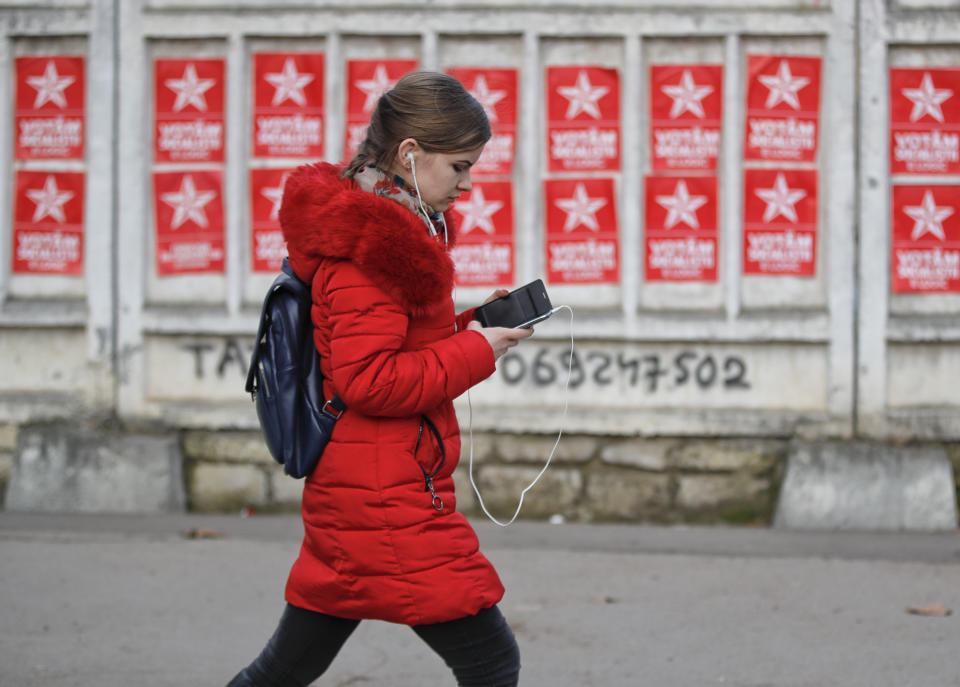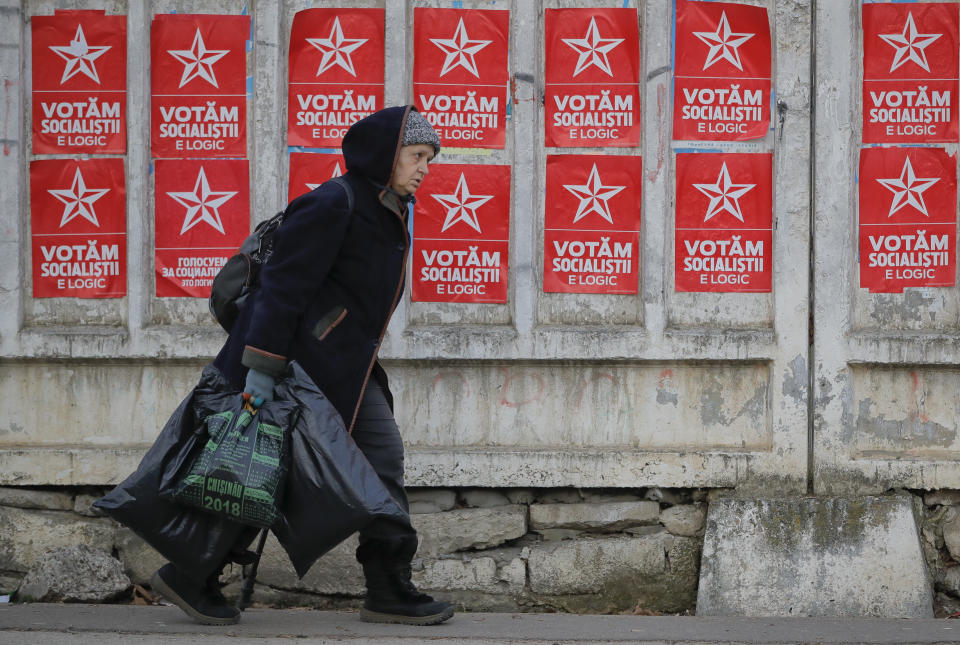AP interview: Moldova president says country needs Russia
CHISINAU, Moldova (AP) — Moldova's president said Thursday the former Soviet republic needs good relations with Russia, amid uncertainty about the future of the European Union.
President Igor Dodon said in an interview with The Associated Press that Moldova depends on Moscow for energy, exports and to solve a frozen conflict in its pro-Russian breakaway republic of Trans-Dniester, where Russia has 1,000 troops and 500 peacekeepers stationed.
Russian officials say they need to stay there to ensure peace and protect huge Soviet-era ammunition depots located in the area, but Moldova's government has called them a destabilizing presence.
Speaking ahead of parliamentary elections on Sunday, Dodon, a government opponent, argued Moldova needed "an open market for our products.... we need energy resources (and), we have more than 500,000 citizens," in Russia, he said, speculating that the figure was even higher. Russian official statistics however, put the figure much lower.
Relations with Russia deteriorated after Moldova signed an association agreement with the EU in 2014. Russia then placed an embargo on some Moldovan goods.
Located between Romania and Ukraine, Moldova, with a population of 3.5 million, is one of Europe's poorest countries. Its workers sent home $1.3 billion last year, or some 12 percent of the gross domestic product, a huge boost to the economy.
The country currently gets about 95 percent of its natural gas from Russia, although, in an effort to lessen its dependence, last year it signed a deal with a Romanian gas transporter to supply it with Romanian gas.
While saying he also wanted ties with the EU — now the market for 70 percent of Moldovan exports— Dodon, who was elected in 2016, noted uncertainty about the bloc's future and development.
"I don't know what'll happen to the EU in 10 to 15 years from now," he told the AP. "Why should we have objectives and make promises?" he said, pointing to Britain's scheduled departure from the 28-nation bloc and anti-European sentiments in some EU member states.
Dodon's former Socialists' Party, the leading opposition group, is expected to win the most votes in Sunday's ballot, amid anger with the nominally pro-European government over endemic corruption and falling living standards.
Dodon, 44, warned about possible unrest if elections were rigged. He pointed a finger at Vladimir Plahotniuc, leader of the Democratic Party— the main group in the ruling coalition— claiming the party "never hid that it's them that in fact control all the state institutions," excluding the presidential office.
The race is a three-way contest between Dodon's Socialists, the Democratic Party, and the pro-EU opposition ACUM, a coalition led by Former Education Minister Maia Sandu and protest leader Andrei Nastase.
The country has enjoyed growth thanks to investment and remittances since a 2014 crisis, when $1 billion was plundered from three banks ahead of parliamentary elections. Last year, however, the EU froze aid amid allegations of fraud in the Chisinau mayoral election.
________________________
Alison Mutler in Bucharest, Romania contributed to this report.


